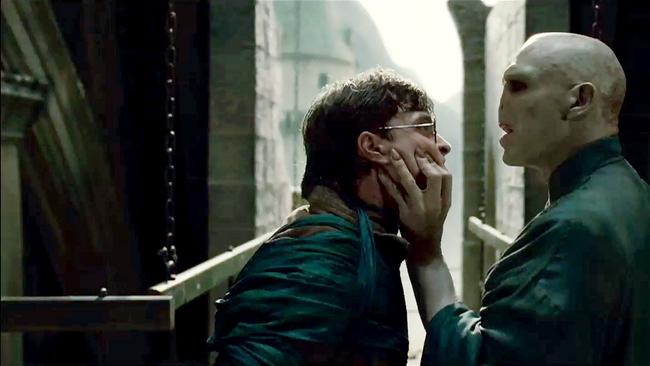2020, cancel culture and the year without mend
Cancel culture is destroying the joy of Christmas — just when we need it most.

From the vantage point of Christmas, looking back, a mood poem composed about 2020 might be coloured beige, its temper bland. It is as if TS Eliot’s summary prophecy from 1925 about the century ahead had come to fruition: “Shape without form; shade without colour.” But why so, surely this is a surprising judgment to be making about 2020?
This was a year like no other in the past 80. The pandemic tore virtually everybody out of the predictable rhythms of their lives. Put into doubt became the stable, normal, secure passing of personal and social time, conducted relatively happily in a secular way, without much thought given to epic moments or grand patterns of meaning. Everyday pleasures in intimacy, in family, at work, playing and watching sport, and at leisure were suddenly uprooted by COVID uncertainty. Waves of apprehension, paralysis and fear washed across the year.
It was the sort of year that stimulated our pre-modern ancestors, living in perpetually unstable times, to seek metaphysical explanations. One might expect in such a prolonged climate of existential threat that the imagination would search to make sense of things being so prodigiously out of order.
To give the greatest precedent of all, the riot and violence of Elizabethan England pitched Shakespeare into a lifelong wrestling to interpret the human condition. He was particularly concerned with social and political disorder, and the effects wreaked on different types of character disposition by the up-ending of the social cart. At the extreme, in Macbeth for instance, the imaginative colouring of the play is a sort of black hell on earth, populated by weird witches screaming their prophecies, with nature in revolt; storms crashing down; the sound of knock, knock, knock disturbing the night; as the drama struggles to understand the motivation of the central character. Night comes into ascendancy over day; and “Out, out brief candle!” rises as the judgment on both the times and individual life.
Where are our equivalent great stories to help those tossed in the present to make sense of what has been happening to them this year? A character in the television series The Sopranos laments that his life has no arc. A life without a discernible trajectory pointing towards a valued end has no meaning. The life of the Sopranos character in question disintegrates in heroin addiction. Having an arc depends on a plausible imagined story about oneself.
We have even abandoned our annual rituals formed to alert us to archetypal themes about birth, suffering, and cruel death. Christmas itself provides illustration. A ritual predicated on wonder, it celebrated the magic of a baby. Accompanied by the bringing of rich gifts, it drew on a wider community for supporting reverence. A profusion of present-giving gained some anchoring authority from the foundation story, and the gifts of three Eastern wise men. Carols drove the Nativity, providing its vital energy, climaxing in images of the transcendent candlelit glow on bright eager young faces.
Christmas hope is still reflected in the enduring popularity of the tune Twinkle, twinkle, little star:
Twinkle, twinkle, little star,
How I wonder what you are!
Up above the world so high,
Like a diamond in the sky.
The star shines its inspiring light on the world. Adults are the traveller referred to further on in the lyrics, a traveller in the dark, whose path is lit by the star. Otherwise they would be stranded, lost. So it is that each tiny child brings the twinkling hope of redemption into a fallen world.
But today this is a dim flicker from a brighter past. Extended families get together for an essentially secular celebration of the end of the year — to gorge, to drink, and to reminisce. The wonder of Christmas was at its height in carol singing, but carols are now censored. Political sensitivity in government schools, local council gatherings and now corporations is banning any reference to the birth of Jesus. Jingle Bells survives because it is pagan. In schools, Chinese New Year is celebrated while the main festival that was culturally meaningful to the vast majority of Australians is suppressed.
This is weird, as in the sense of Macbeth’s “weird sisters”, three malevolent witches focused on prophesying a cursed future. The impulse that censors is punitive, its energy that of rancour: an unease about anything that might inspire or give colour.
While this is dressed up as virtue, the host society being sensitive to those from non-Christian cultural backgrounds, it is striated with rancour, and rancour likes the dark. So, by means of an act of psychological negation, the “little Lord Jesus who lay down his sweet head” has been recast as someone to be shunned.
Sociologist Max Weber, a century ago, typified the mental state of the modern world as “disenchantment”. With the death of God and the demise of formal religion, life was in danger of losing its magic — enchanted fun and passion draining from a human world in which there are no supernatural reference points. The suppression of Christmas carols, a recent development, goes further. Not merely a passive passing away of a vitality that once was, it is more active, manifesting as an instinct for self-annihilation driving in the upper echelons of the culture. What does the act of cancelling something as hauntingly beautiful and innocent as Silent Night, Holy Night tell about the mental balance of a society?
During 2020, cities, towns and suburbs were turned into ghost absences, careers ended, businesses bankrupted, relationships subjected to intolerable stress and the psychic wellbeing of individuals poisoned. A third of businesses in Melbourne’s central business district remain closed. Surveys show that happiness indicators in Australia dropped dramatically in the middle months of the year, and welfare and support agencies have reported being swamped by unprecedented demand. Yet the story as told publicly, like the mood in the streets and the extraordinarily compliant, law-abiding behaviour of most citizens, suggested a surprisingly even-tempered digestion of abnormality. It was hard to tell whether surface sociability, as lockdowns eased, was any more substantial than if it were strung on flimsy rotting thread. Shape without form! Without tendrils of deeper meaning, what was here to anchor anything?
The big stories in every culture address the central human meaning questions about where we come from, why we are here and what happens at death. This is true in parenthesis for the Jesus story. Its climax at Easter focuses on the death question, as symbolised by the cross. But the modern West has almost entirely turned its back on this, its most important traditional reservoir of truth, and its reworkings in high art from Raphael and Poussin to Bach. Is this out of neglect and cultural obsolescence, with changing times or is the subject of death itself being repressed?
The most influential story of recent decades — Harry Potter — suggests that mortality dread has not receded but changed its costuming. From halfway into JK Rowling’s seven volumes, death becomes the central preoccupation — the hero actually dies and is resurrected — and this is despite the primary audience being children. The villain even has mortality scripted into his name, Voldemort, thief of death, or flight from death. It seemed a portentous mimicry of the banning of Christmas wonder in Australia when The Cursed Child, the truly magical box-office hit and Harry Potter sequel, was forced into COVID closure at the Princess Theatre in Melbourne.
The turning off of the theatre lights might be likened to the rite of passage from child to adult. For children who have been given their own rebirth metamorphosis story, thanks to popular culture, what is to replace it in their maturity? The adult world has almost completely forgotten the Passion of Jesus, with its own high culture having abandoned its mission of speaking truth to the times — and especially the truths about human suffering and tragedy such as Shakespeare sounded out in Macbeth. Ordinary people need the help of writers and artists in understanding what is happening to them when the normal security rugs are ripped out from under.
Shapeless threat is scary. It is the ghost city of mid-2020 Australia, with unpeopled footpaths, abandoned shops and trafficless streets. Without form, it is like the gloom that has descended over Macbeth, but with the characters and their narrative removed, leaving vacant menace. It is like the Dementors in Harry Potter, weird wraithlike spectres chilling the air in their vicinity and sucking the life out of their victims — art providing another telling metaphor.
One exception to the flight to blandness, and the hope that all is fine, have been the cartoon meditations of Michael Leunig this year. In one, Private Hell, a man shows an ordinary-looking angel an empty shed in his back yard, HELL written over the door. He explains that he spends time in there regretting things, feeling anxious and terrible, overthinking; then he comes out to smell the roses and chat to people like the angel, before he goes back in again, like everyone else, and it starts all over.

What of other straws in the contemporary wind? Maybe coincidences; maybe omens? The new series of The Crown has as its key impression point the cruel, weak and selfish character of Prince Charles. The royal family endures as a celebrity anachronism because it provides fairytale magic in a disenchanted world. But how will it survive when the monarch-in-waiting is cast, in the Netflix narrative most will take to be the truth, as a very ordinary, profane man, little worthy of admiration?
Where disenchantment shows as a defining characteristic is in bureaucracy. A royal commission into the 2009 Victorian bushfires that killed 200 people found that emergency service officers were so overwhelmed by the bureaucratic order they were meant to be administering that they forgot to warn people in danger that fire was approaching. They forgot to yell out: “Fire!”
The same problem erupted in the Victorian Department of Health and Human Services this year, with even more catastrophic consequences. The DHHS was so blinded by process it mistook a health emergency for an administrative one. It turned out to be not even very good at administration. Bureaucracy’s strength is rarely in dealing with real-life challenges: it lacks the flair and imagination to act with spontaneous, adaptable common sense. In this saga of misgovernance, a symptom of disenchanted blandness was the truth-evading by ministers and senior public servants about who had made the decision to employ private security in quarantine. “I was not responsible” rang out the timid squeaks of evasion. Knock, knock, knock!
At the practical level, Australia has managed the pandemic brilliantly. A fortunate combination of able political leadership at both federal and state levels with a strong supportive public collective conscience, which led to high levels of civic obedience, has meant that the woes besetting Europe and the US have been avoided. This, of course, is to be applauded and celebrated. On the plane of political management things have gone very well. My issue is not here.
My concern has been with the other quite separate plane, the mysterious one on which the psychological dramas of life strut and fret, beyond comprehension; where the twists of fate trace out their enigmatic way through the undergrowth of unsettled times. What is there in the blacked-out empty backyard shed this year to provide a vivid enough decor to calm and engage the mind rattled by vague apprehensions about a modern hell? So much happens under the murky surface that a confident answer is difficult to provide. But one fears shapes have not found enough form.
John Carroll is professor emeritus of sociology at La Trobe University.




To join the conversation, please log in. Don't have an account? Register
Join the conversation, you are commenting as Logout